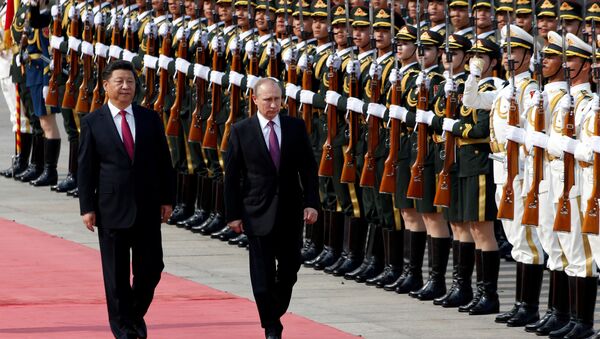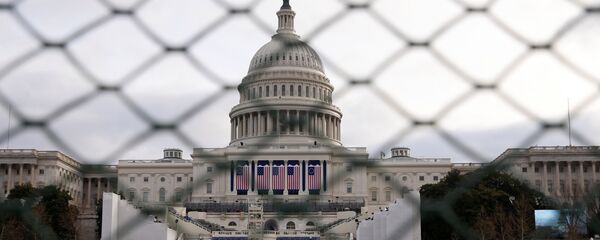"This new requirement seems to be primarily a tool to help justify future funding and nuclear spending in an area where the Pentagon and STRATCOM (US Strategic Command) has already been working to expand," former US Air Force Lieutenant Colonel Karen Kwiatkowski said.
"The 2017 NDAA calls China and Russia the two ‘near-peer’ competitors of the United States, and that is a reach in practical terms. Nuke-wise, Russia fits this definition, but China does not. Military spending-wise neither approaches ‘near-peer’ status," Kwiatkowski maintained.
Indeed, the United States is dependent on China in trade, and in order to make space launches the United States is dependent upon Russian space launch facilities, Kwiatkowski pointed out.
"I suspect China and Russia are listed and supported mainly as budget justifiers rather than actual threats, and near-peer competitors begs the question — competing for what?" she asked.
Kwiatkowski said she believed the relatively short timelines (January 15, 2017 and April 15, 2017) set by Congress for the study indicated to her that most likely the material was already available in a form suitable to be given to the congressional committees listed as recipients of the reports.
"This tells me it isn’t a radically new task area in terms of discovery and conceptualization. It will be politically useful for Pentagon and congressional hawks to continue scaremongering, and possibly even more importantly to Congress, to ensure continued spending growth. I can’t be more cynical than this," she said.
"Unfortunately, the rest of the country and the world will see this coming report and subsequent debates as a major opening towards the United States developing and improving their first strike capability against these ‘near-peer’ competitors," she said.
Former US Army Colonel Doug Macgregor, a leading military tactician and historian, noted that the request for the study reflected the ignorance of war and strategy now common among US national politicians.
"This study was directed by Congress, not the White House or the national military," he said. "American political leaders frequently assume that the elimination of foreign national leadership will immediately precipitate collapse and conditions favorable to US interests. It's a laughable notion without basis in fact."
Neither the Russian nor the Chinese States would suddenly collapse in the event that the national leadership did not survive, Macgregor pointed out.




